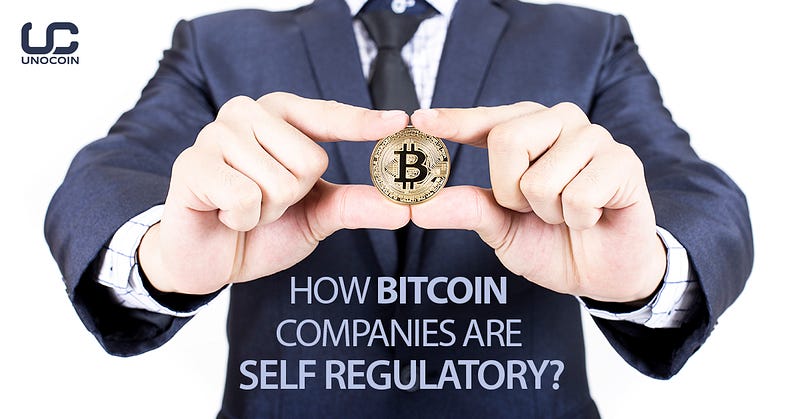
In recent months Bitcoin has been catching a lot of eyeballs. Some are drawn in its direction for its lucrativeness and appeal, while others see it as a threat, a bubble. For this very reason, governments around the world have rallied together — and on their own — attempted to regulate the Bitcoin market, to introduce this apparent fringe dweller to some standard. This has resulted in new models to study and analyze — a precursor to the final decision.
The Indian experience of Bitcoin isn’t jaded, in fact, the growing fascination for newer investment verticals in one of Asia’s fastest-growing nations makes news daily — with the increasing number of domestic users and merchants, the institutional posturing and the government’s take on the situation being prime examples.
The latest in Bitcoin regulation in India is that there is a clear and affirmed tilt to regulate and monitor the market. This a backed by the rationale that regulation will ensure that digital currency, in every form, will not be used for illegal or nefarious purposes.
Cryptocurrency falls into a legal grey area. Internationally, there is little consensus on how and why countries would deal, regulate and legalize cryptocurrencies, and in India Bitcoin’s status falls on the two extremes — legal and illegal. If the Indian government’s desire to regulate Bitcoin isn’t followed by proper policy and implementation, then Bitcoin would still remain a topic of debate — as an investment opportunity or otherwise.
The Bitcoin Movement in India
Over the last few years, the growing fascination with and importance of Bitcoin has seen the rise not only in a variety of exchanges but also merchants. There are stories from all over the subcontinent tracing the use and acceptance of Bitcoin; from the pizzeria in Bengaluru to the diamond merchants in Surat. These stories are an indicator of the increasing influence of Bitcoin and its advocates. In this sketchy scenario where Bitcoin, its acceptance, and regulation are up for debate, many are demanding (and delivering on) self-regulation rather than depending on the institutions of the Indian Government. In line with the historical trend of self-regulation in the cases of innovative and infant industries, leading Bitcoin exchanges are not only demanding autonomy but also claiming the inefficiency and gridlock that is the Indian government could possibly dampen the growth of this market.
Take Unocoin for instance — at Unocoin, a PAN card is mandatory for any and all user registrations. Without a PAN card, you cannot even access any service on the portal. Other norms mandate transferring funds via your bank account only. This, coupled with other KYC practices ensure a basic level of safety and security that regulation may have demanded.
The Indian Bitcoin community at large and it’s leaders are quite sure of the market’s future and how they want to go about verifying, regulating, monitoring and predetermine how the model functions.
The Institutional Response
The Finance Ministry in India has set in motion an investigative and analytical committee to assess the impact of the digital currency market (both at home and abroad), suggest responses and regulatory measures to deal with the illegal aspects of cryptocurrency — terror funding, narcotics, money laundering etc. This and the general attitude to digital currency in the country — courtesy of the current regime’s incessant need to digitize the country — makes an all-out ban on cryptocurrency unlikely.
The increasing number of domestic Bitcoin adopters — in the form of exchanges, online outlets, brick and mortar stores and individual users — sees an increasing upward pressure on the ministry to legalize Bitcoin. While India is seen as a last-minute adopter, late to the game as ever, its user growth rate is astounding, making the Indian digital market and its status a hot topic.
Bitcoin legalization and regulation in this writer’s opinion is not just possible, but highly probable. Even though many skeptics both in and outside the government cite Bitcoin’s tumultuous growth, the probability of a bubble and crash and the fact that digital currency inherently has no value, the overall attitude, and ambition of the current government trumps these viewpoints. Goals such as financial inclusion and a digital-independent India are only possible if the Indian government takes a welcoming step towards Bitcoin while it remains the lynchpin of the global cryptocurrency market.
Significance & Predictors
Technology adoption in the 21st century is an important matter. The whos, whys, and whens of tech-adoption, either by society or state defines the course of the future. Bitcoin is the result of a cumulative ambition to innovate, enjoy the financial freedom and include the masses.
The global scenario is this — some governments have decreed that Bitcoin is illegal, some have adopted it in their daily function, some have decided that along with society it would become a user, and others have not yet decided. In this situation, the potential misuse of Bitcoin takes precedence. And the only response to it is to either regulate and monitor or outright demonize.
Japan, the U.K, Korea and Ukraine have adopted Bitcoin to fit their circumstances. Societies and communities around the world, surrounded by war and political strife (Venezuela and Brazil are good examples), have taken it upon themselves to rid the government in their financial affairs by adopting Bitcoin.
So we know that:
- Bitcoin globally sits in a grey area.
- Many countries around the world have adopted it, while a few others have demonized it.
- The Indian market for cryptocurrencies is in its infancy but is seeing exponential growth.
- Legalizing and regulating Bitcoin will not only see domestic financial gains but also meet the government’s desire to digitize India.
- The domestic market for digital currencies in India is strong in both numbers and influence.
All of these together make the probability of a “Bitcoined India” quite high.
Also Read:
https://blog.unocoin.com/satoshi-nakamoto-is-now-worth-15-billion-e2c3a9862be



